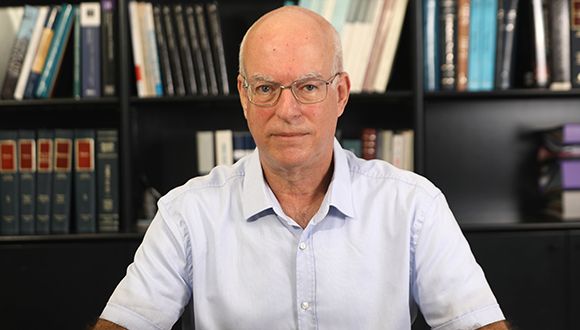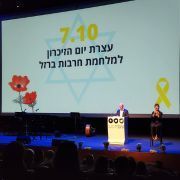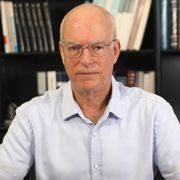A Letter from TAU President Welcoming the New Academic Year
"May the hostages come back, the wounded heal, and the displaced return to their homes".
Nov. 3, 2024
This week, we begin the 2024-5 academic year, against the backdrop of the bloody war that rages on, and while we still lack a clear sense of how this war will unfold, particularly in relation to Iran.
The anguish over the hostages weighs heavily on us all. It’s hard to believe that over a year after the horrific disaster of October 7, many hostages are still languishing in the hellish tunnels of Gaza, with the bodies of many others held there as bargaining chips. We cannot win this war without bringing everyone home. Added to this is the daily sorrow and mourning for our soldiers, including members of our university community, who have fallen or been injured while defending us, as well as for the civilians who have fallen victim to terrorist acts across Israel. Our concern for the soldiers on the front lines and the tens of thousands of Israelis in the South and North--who either remain vulnerably in their homes or were displaced by circumstances--is unrelenting.
Yet, we have no other country, and fight for it we must. This is what the parents and grandparents of many of us did even before the establishment of Israel, and now it’s our turn. Our extraordinary young generation, with so many risking their lives on the battlefield, places a weighty responsibility on us, the older generation. What are we doing, as a university, and what more must we do in this crucial period?
One of our primary tasks, both last year and this year, is to do everything in our power to ensure that the reservist soldiers studying with us, as well as students who are spouses of soldiers, can complete the academic year successfully. Last year, we provided financial, academic, and emotional support and we will continue to do so this year as well. The emergency fund we established with the help of friends of the university in Israel and around the world has greatly assisted us in this endeavor.
Second, we succeeded last year in containing tensions on campus triggered by the war while maintaining a democratic space and protecting the human and civil rights of everyone. Members of our university community, Jews and Arabs, left-leaning and right-leaning, are equally dear to us. Open and free discussion on any topic is the essence of academia, and we will uphold this principle this year as well.
Third, a primary mission we are focused on is bringing as many Israeli researchers studying abroad back to Tel Aviv University as we have done in previous years. These researchers represent the next generation of academia; they embody the scientific and humanistic pursuits without which we have no future. Israel may seem less attractive to some of them at present, but I am confident that we will weather this crisis and emerge stronger.
Fourth, the growing boycott of Israeli academia worldwide (BDS) affects us all. Universities across the country have united and are working collaboratively to mitigate the impact of the boycott through legal and other means. We’ve had some successes, but there is still a long way to go.
Fifth, from October 7 to this day, the university--as an institution and as a community--has been involved in numerous volunteer activities. Days after October 7, our community members volunteered in the South and North, both in their areas of expertise and in agriculture and other manual work. We will continue to do so this coming year, hopefully in collaboration with local authorities in the South and North. A few months after the war broke out, we established the Post-Trauma Center, treating hundreds of people, both civilians and soldiers. Here, too, the generous financial support of our friends in Israel and abroad has been invaluable.
Sixth, we will continue to defend academic freedom and the autonomy of universities in Israel against those who seek to harm them. Academic freedom is essential for free thought, intellectually challenging education, and groundbreaking research. Without these, we will become a third-world country. I assure you that I will protect our academic freedom as one of my most cherished values.
These are the special missions that characterize this period. But equally important: last year, we carried on teaching and doing research as if – or almost as if – there were no war. We, the university and Israel as a whole, do not have the privilege to stop "producing" doctors, engineers, psychologists, social workers, scientists, and humanist intellectuals. Nor do we have the privilege to stop advancing research. This is the source of our resilience, the safeguard of our future, and we cannot forsake it, not in times of peace and certainly not in times of war.
I thank you all – academic and administrative staff – for your hard work this past year to meet the challenges we set for ourselves, and our friends in Israel and abroad – for your generous support of the University and Israel. And to you, our students – thank you for your patience with us. We are doing our utmost so that you derive the maximum benefit, and hopefully some enjoyment, from studying at Tel Aviv University.
I wish you a successful year, and may peace and tranquility return to our land. May the hostages come back, the wounded heal, and the displaced return to their homes.
Yours always,
Ariel Porat
TAU President






